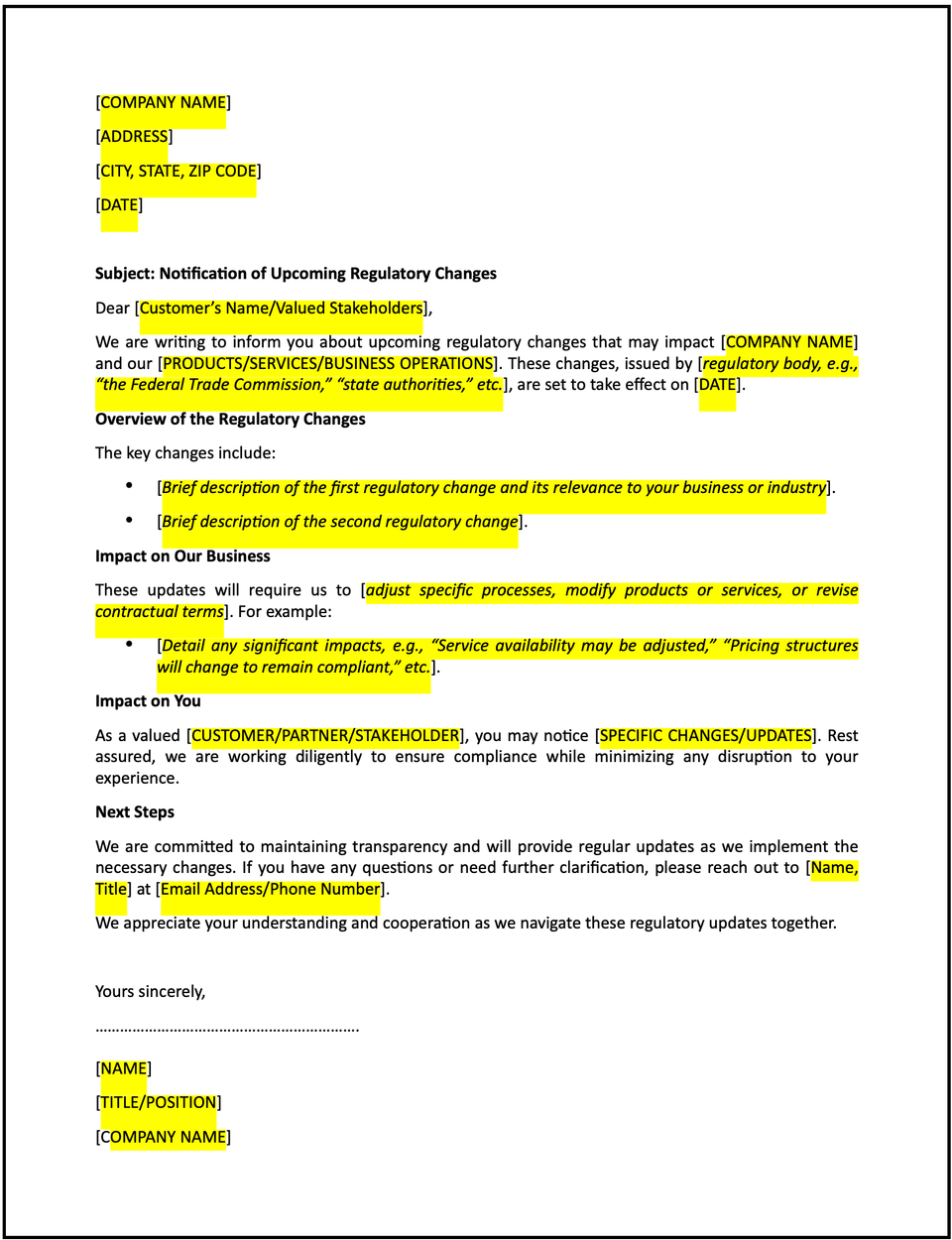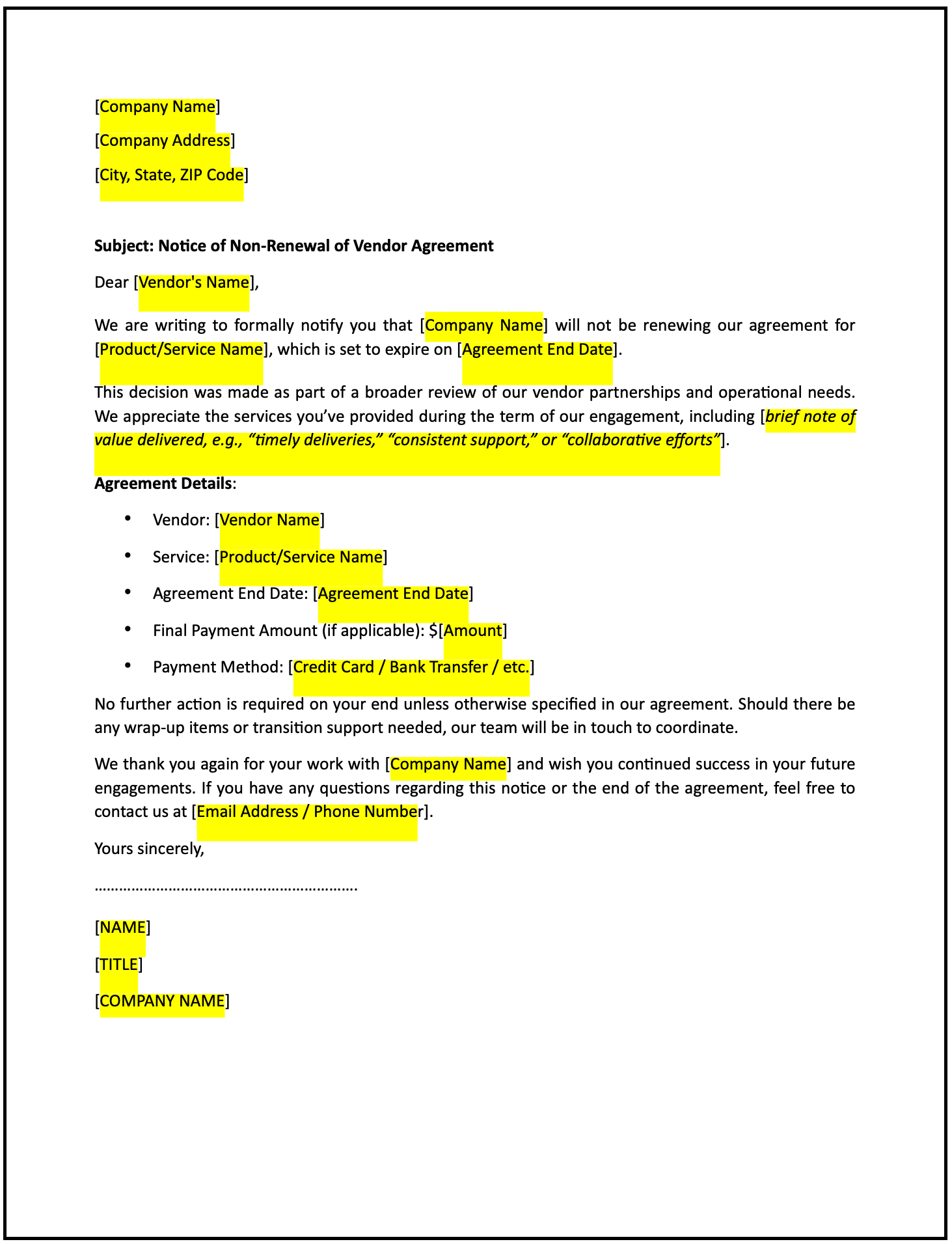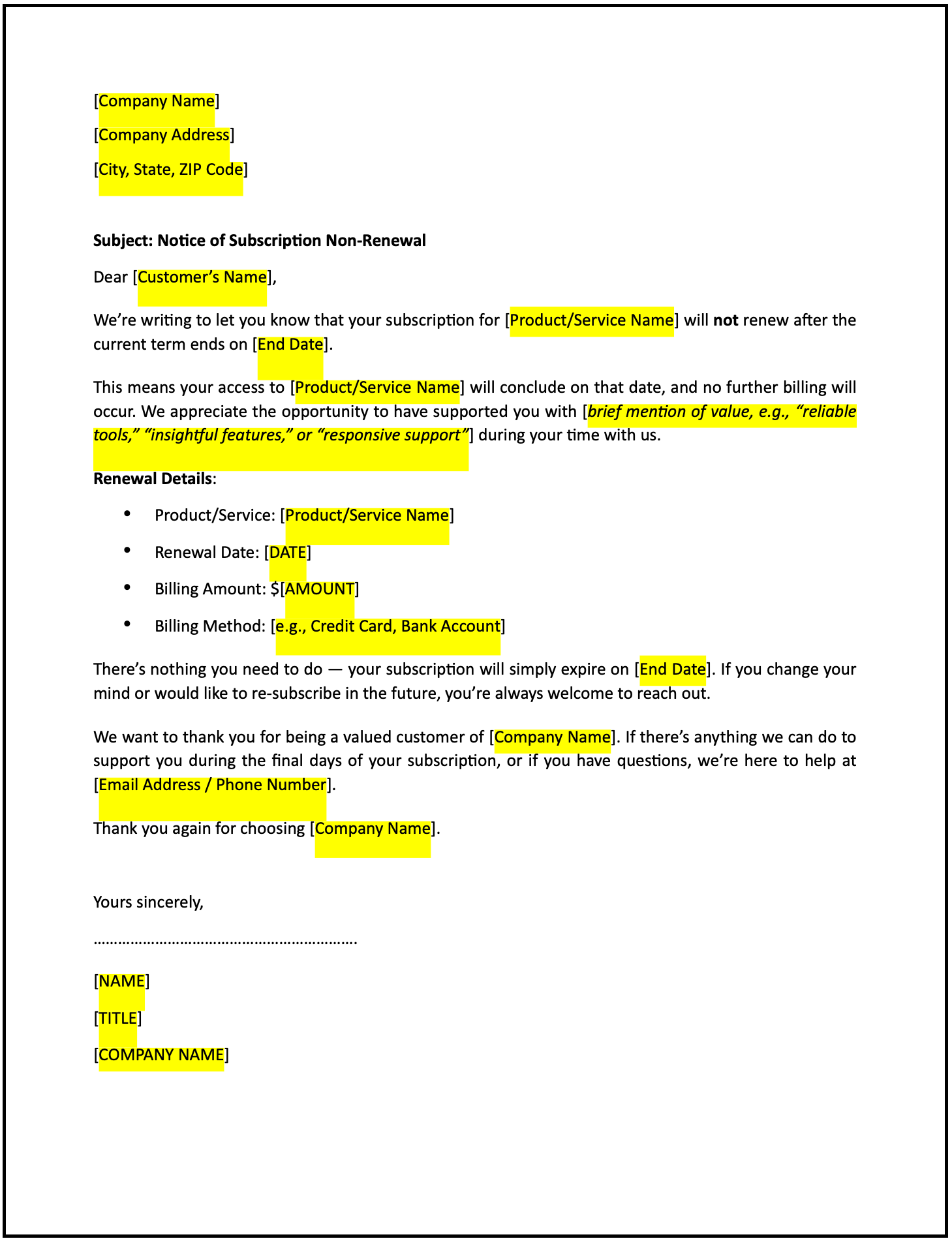Letter of upcoming regulatory changes impacting the business: Free template

Letter of upcoming regulatory changes impacting the business
A notification letter of upcoming regulatory changes impacting the business is a formal way to inform stakeholders, employees, or customers about changes in regulations that may affect the organization. This letter explains the changes, their implications, and the steps being taken to adapt, fostering transparency and alignment.
How to use this letter of upcoming regulatory changes impacting the business
- Open with the announcement: Begin by informing recipients about the upcoming regulatory changes and their relevance to the business.
- Specify the details: Clearly describe the regulatory changes, including their nature, scope, and effective date.
- Explain the impact: Highlight how the changes may affect the business, its operations, and any associated stakeholders.
- Outline the response: Describe the steps the organization is taking to comply with the changes, such as implementing new processes, updating policies, or training employees.
- Offer support: Provide guidance or resources for stakeholders to understand the changes and their potential effects.
- Maintain a professional and constructive tone: Ensure the letter reflects accountability, clarity, and a proactive approach.
- Provide contact information: Include details for recipients to reach out with questions or additional concerns.
Benefits of using a letter of upcoming regulatory changes impacting the business
This letter template ensures a structured and professional way to communicate regulatory changes while fostering trust and engagement. Here’s how it helps:
- Promotes transparency: Clearly outlining the changes builds trust and ensures stakeholders are informed.
- Reflects professionalism: A well-crafted letter demonstrates the organization’s commitment to compliance and clear communication.
- Encourages alignment: Sharing the response plan fosters alignment among employees and stakeholders.
- Reduces uncertainty: Explaining the impact and next steps reassures recipients of the organization’s readiness.
- Provides documentation: A formal record of the notification supports compliance and organizational processes.
Tips for writing an effective letter of upcoming regulatory changes impacting the business
- Be specific: Clearly describe the regulatory changes, their timeline, and their implications for the business.
- Use professional language: Maintain a respectful and constructive tone to inspire confidence.
- Highlight the impact: Explain how the changes will affect operations or stakeholders and why compliance is necessary.
- Include actionable advice: Provide guidance on how stakeholders can prepare for or adapt to the changes.
- Keep it concise: Focus on the key points while ensuring the tone is professional and proactive.
Frequently asked questions (FAQs)
Q: What details should I include in this letter?
A: Include the nature of the regulatory changes, effective date, impact on the business, and steps being taken for compliance.
Q: Should I personalize the letter?
A: While a general letter is appropriate for broad audiences, personalizing for key stakeholders can enhance its impact.
Q: Who typically sends this letter?
A: The compliance, legal, or communications team usually sends this letter.
Q: How formal should this letter be?
A: The tone should be professional and reassuring, focusing on clarity and proactive action.
Q: When should this letter be sent?
A: Send the letter well in advance of the effective date to allow recipients sufficient time to prepare.
Q: Can this letter include additional resources?
A: Yes, providing links to regulatory documents, training materials, or support channels can enhance understanding.
Q: Is acknowledgment from the recipient required?
A: While not mandatory, encouraging acknowledgment ensures recipients are aware of and prepared for the changes.
This article contains general legal information and does not contain legal advice. Cobrief is not a law firm or a substitute for an attorney or law firm. The law is complex and changes often. For legal advice, please ask a lawyer.


